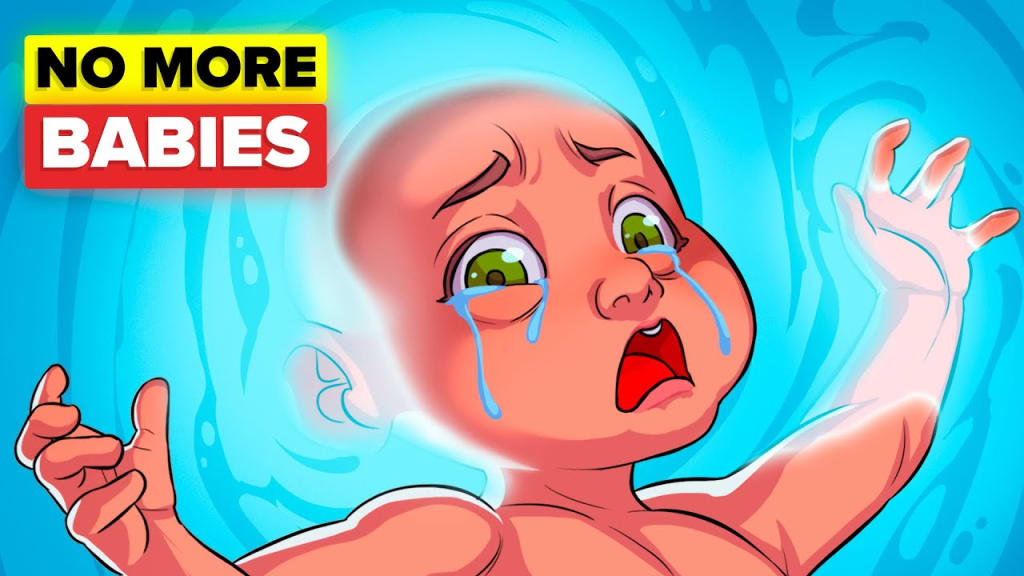How would the world change if no babies were born for a year?
Imagine a world where no new babies are born for a whole year. How would this affect different aspects of life? You might think that this would be a disaster for humanity, but it might also have some surprising benefits. In this story, we will explore the consequences of a year without babies for the economy, the environment, the education system, and more. Read on to discover what would happen if the birth rate dropped to zero for 365 days 👶🍼🛑

No Babies for a Year? Exploring the Strange Consequences
Imagine if no babies were born for an entire year. How would society react and adapt to such an odd phenomenon? While a baby drought would certainly cause some chaos initially, the long-term impacts might be less severe than you'd think. Let's explore the curious implications across different sectors.
The Hypothetical Scenario
For this exercise, let's pretend the last baby born was on December 31, 2023, at 11:59 PM. Then for the next 365 days until December 31, 2024 at 11:59 PM, no new babies enter the world.
"From January 1st, 2024, 12:00 a.m. to December 31, 2024, 11:59 p.m., there will be no babies born. This means for exactly 365 days, no new human life will arise on planet Earth."
We'll assume doctors realize something is wrong around March 2023, 9 months before the baby blackout begins. How would key groups react over the course of the year without infants?
Population Impact
Currently, around 130 million babies are born each year. With no new births and deaths continuing, the global population would drop by an estimated 60 million.
"If no babies were born for one whole year, the population would obviously decline, as just because there are no births doesn’t mean there won’t be any deaths. 60.95 million people are expected to die in 2024, or around 167,000 people a day."
This would bring the population down about 0.75% to around 7.98 billion by early 2025. A small blip overall, and one that would quickly rebound.
Medical Community Responses
Doctors would be the first to detect a problem when pregnancies drop off. While alarming, they'd have time to prepare for the coming year without deliveries.
"In fact, the problems began approximately 9 months ago. It would be around March of 2023 that obstetrician-gynecologists, or OB/GYNs, would first notice something was wrong."
With no more expectant mothers to care for, maternity wards could empty out or convert to other uses. Some OB/GYNs and nurses may switch specialties.
This could cause staff shortages when births resume, unless policies encourage return to maternity roles. Pediatricians would also see lighter workloads with fewer infants during the year.
Education Changes
Schools would operate normally through the baby drought. The impacts on enrollment would emerge years later.
"5 years after no babies were born and the missing generation would have been ready to start school, kindergarten classes would be eerily empty."
Kindergarten teachers could be reassigned and class sizes reduced in early grades. The missing cohort would progress through the school system, leaving smaller classes every 5 years.
Colleges would have at least 12 years to plan for the gap's arrival on campus. With advance warning, major education disruptions could likely be avoided through temporary policy changes.
Economic Pain for Baby Goods Companies
Industries catering to infants would suffer shrinking revenues without new customers.
"Baby product companies would definitely have a rough year in 2024 if no infants were born. It wouldn’t cause major corporations like Johnson and Johnson, Pampers, or Gerber to go out of business, but it would have some detrimental effects on their bottom line."
Layoffs and losses would hit small businesses hard. Bailouts could ease the pain. Excess inventory could be donated.
But with pregnancy resuming 9 months in, companies could prepare for the return to normal sales in 2025 and rehire accordingly. The baby drought would be a temporary blip overall.
Societal Adaptation
A year without infants would require some adjustments. But humans are resilient in the face of change. With the medical community confident births will restart, panic would be avoided.
The population drop would ease resource demands slightly. Couples wanting children would endure heartbreak, but could plan families soon after. Lower enrollment could reduce overcrowded schools.
While definitely abnormal, society would take the missing baby year in stride and look forward to new generations arriving again. The long-term impacts would be minimal.
Potential Benefits of Focused Research
With the top scientific minds dedicated to investigating the cause, great advances in reproductive health could occur.
"Possibly the most important thing to come out of a year with no babies is the advancement of research that would result from trying to understand the phenomena."
Fresh insights into human fertility might be uncovered that improve medicine and support healthier parents and babies in the future.

Looking on the Bright Side - Finding the Silver Linings of a Babyless Year
A peculiar quirk like no births for a year would certainly shake up some norms and expose vulnerabilities. But humanity would adapt and recover. The resilience of our systems and societies would prevail over a temporary baby drought. While any missing generation poses challenges, targeted policies could mitigate the impact. And the quest to explain the anomaly could reap scientific rewards that better tomorrow's families.
📝 SOURCES: https://pastebin.com/H80DBiZt






Comments
There are no comments for this story
Be the first to respond and start the conversation.